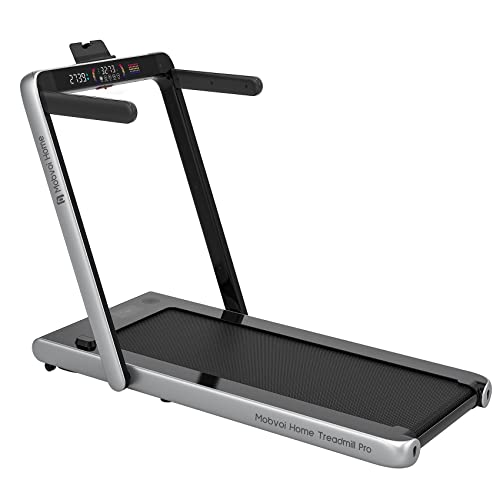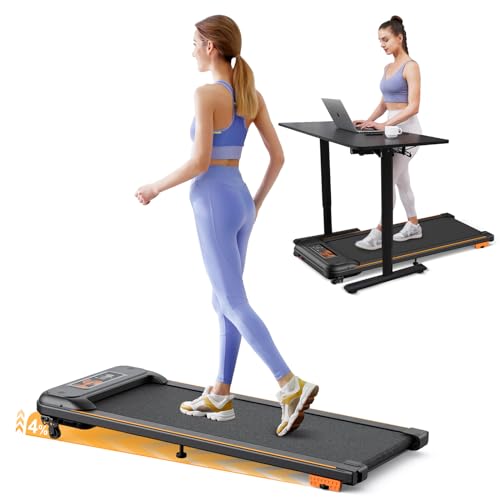Where Can You Find The Most Reliable Is Treadmill Incline Good Informa…
페이지 정보
작성자Madonna 댓글댓글 0건 조회조회 164회 작성일 24-06-26 12:52본문
 Is Treadmill Incline Good For You?
Is Treadmill Incline Good For You?Using a treadmill's incline setting will help you reach your fitness goals in a more efficient manner. It is important to know the impact on your muscles and joints before increasing the incline.
 Start with a 0% incline to warm up, and then increase it to 2-3 percent. This incline will resemble the speed of a quick grocery shopping trip.
Start with a 0% incline to warm up, and then increase it to 2-3 percent. This incline will resemble the speed of a quick grocery shopping trip.Increased Calories Boiled
Walking or running on a treadmill with an inclined surface burns more calories than the flat surface. This is because the incline simulates running or walking uphill, which requires more effort from the muscles. As such, it burns more calories particularly if you use the hand rails, or use the built-in resistance features on the treadmill for exercises for strength training.
The incline feature of the treadmill can also provide more variety to your workout, which can help to avoid boredom and fatigue. It's important to begin with a lower incline and then gradually increase it as you become more comfortable. This reduces the risk of injury.
Incline treadmill exercises target a variety of muscles that include the core and legs. This creates an effective and well-rounded exercise. Walking or running on an inclined slope, for instance, targets the quadriceps and calves, which helps strengthen the lower body. Walking at an angle targets the glutes, hamstrings, and upper leg muscles.
A treadmill that has an inclined feature can lessen the impact of running or a walk on the knees. When you enter the treadmill with an inclined surface there is less space between your foot and the ground. This lessens the strain placed on the bones in the joints, making incline treadmill workouts ideal for people with joint pain.
Additionally treadmill exercises that are incline-based are beneficial for those who struggle to lose weight through diet alone. You can lose weight by creating a calorie surplus. This why is incline treadmill good done by burning more calories than what you consume. Walking or running on an uphill treadmill can aid in burning more calories, which helps to tone your muscles and strengthen your legs faster. It is important to remember that the majority of calories burnt during exercise are derived from glucose (blood sugar) and not fat. Walking or running uphill can lead to an increase in blood sugar levels. This is important if you are on diabetes medication or have a medical condition that alters your glucose metabolism.
Increased Muscle Tone
Treadmill exercises that are incline-based boost the tone of your glutes and legs by helping you to increase your metabolism. They also strengthen the muscles in these areas, which can help you improve your posture and increase strength. This can also help with your balance and coordination. Walking or running up a steep incline will increase the amount of upper-body movement, which will help you burn more calories.
The incline feature found on many treadmills incline lets you increase the intensity of your cardio exercise without having to alter your speed. This is ideal for those who struggle with faster exercises or are new to fitness. It reduces the risk that they'll get injured. This exercise allows you to enjoy the same benefits that regular running has, such as better cardiovascular health and blood pressure reduction. It also helps to maintain a healthier heart, but without having to exert yourself to the maximum.
Incorporating incline walking and running into your routine can help you build up your stamina and improve your endurance. You will feel more confident and refreshed when you exercise, and you will be able to exercise for longer periods.
A slight slope can increase your heart rate, which is good for your cardiovascular health. It is essential to keep in mind that if you're a novice to working out on an incline it is recommended to start at a low intensity and gradually increase it over time. Monitor your heart rate to ensure you're not putting your body under too much stress. This is especially important if this is your first time training on incline.
A steady pace on a flat surface can get boring for the majority of people however, by increasing the slope, you are forcing your body to work an entirely different set of muscles. This makes the exercise more challenging and thrilling and also encourages the growth of your muscles.
A lot of treadmills have handrails that allow for leg and upper body exercises. Many models have a heart rate monitor, which allows you to determine whether you're exercising too hard. This is crucial for those who are just starting out because it can avoid injuries such as pulling your knees or back.
Increased Heart Rate
Incorporating the incline portion of your treadmill workouts is one of the most efficient methods to burn more calories, build lower body strength and strengthen your legs. It also enhances your cardiovascular system and boosts the VO2 max.
You can add a new level to your workout by walking or running up an incline, whether on a treadmill or an exercise trail in the outdoors. Your heart rate increases as your muscles and joints adjust to the increase in elevation. Walking on an inclined path forces your feet to land at a more gradual incline, which can reduce the impact and reduce wear and tears on your hips, knees, and ankles. This kind of training is utilized by a variety of world-class trainers to lessen joint stress and injuries.
If you pair it with a heart rate monitor or smartwatch, incline treadmill workouts can aid in keeping your intensity at the ideal level to achieve your fitness goals. If you're new to incline exercises start with a slow to moderate pace. Gradually increase the speed of the incline. For an intense workout on the incline, try interval training, which combines periods of increased incline with flat or less incline segments.
Even those who are used to regular cardio routines will find treadmill walking and running more challenging when you increase the inclined. For example, if you walk at a steady speed of 3mph and you're burning an extra 200 calories when exercising at an upward slope. If you run at a speed of 6mph and maintain that pace you'll burn 228 extra calories when running on an incline. It is recommended for novices to increase the incline by no more than 5%. This will help prevent injury or muscle strain. For the most efficient results, you should try varying the incline of your treadmill workout. This will help you maintain consistency and force your body to improve over time. It is also essential to choose a treadmill that is comfortable with a cushioned, padded base and sturdy handles. This will make your workouts enjoyable and safe for everyone. It also allows you to exercise longer and work up a sweat without feeling uncomfortable.
Reducing the impact on joints
The incline function of treadmills can give you an even more intense exercise without increasing the speed or time. This feature can help burn more calories, increase endurance and build your muscles. However, some people are hesitant to utilize an incline setting because it could cause discomfort or injury to the hips, knees and lower back. To avoid these issues, make sure to use the incline feature correctly and to gradually increase the amount of incline as you increase your strength and endurance.
Inline training stimulates a larger number of muscle groups than running flat, including calves, hamstrings, and glutes. It helps to strengthen these muscles and increases lower body strength as well as overall muscle definition. In addition, incline exercise concentrates on the core, assisting you to improve your posture and balance. It's a great option for those suffering from lower back pain or are unable to get down on the floor to do traditional core exercises.
A small incline on a treadmill minimizes the strain on your hips and knees while still providing a great workout, says orthopaedic surgeon Kevin Plancher of Plancher Orthopaedics & Sports Medicine. In fact, running on an incline of just a little can to prevent shin splints from occurring and encourages greater endurance than running on a flat surface.
The inclusion of a slight incline into your treadmill workout can also reduce the risk of injury to other joints in the body, such as your feet and ankles. Physical therapists frequently recommend the incline feature for those suffering from osteoarthritis in the knee. It has been proven that it reduces pain and improves the quality of life.
When you use the incline function on a treadmill, you'll need to be extra cautious about the amount of pressure you put on your knees and hips. Overuse injuries can be caused by too much incline because the muscles of the knees and hips need to work harder to control the movements. This can aggravate existing joint problems, causing discomfort or even damage to the joints.
If you are unsure of how to set up your incline, a fitness trainer or health care professional can help. It is important to begin with a low amount of incline, and then increase it gradually as your body adjusts. It is also important to warm your muscles before beginning an exercise that is incline-based to prepare them for the increase in intensity.
댓글목록
등록된 댓글이 없습니다.

